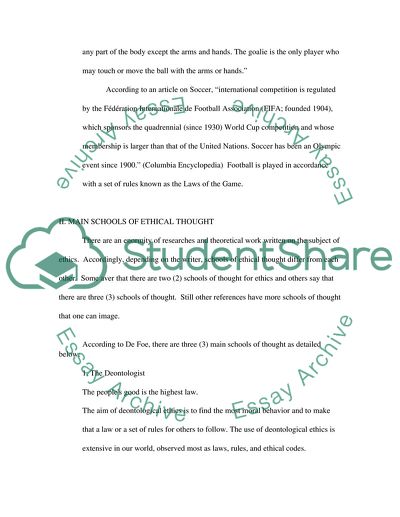Cite this document
(“Ethics and Issues Of International Football Term Paper”, n.d.)
Ethics and Issues Of International Football Term Paper. Retrieved from https://studentshare.org/sports-and-recreation/1718736-ethics-and-issues-of-international-football
Ethics and Issues Of International Football Term Paper. Retrieved from https://studentshare.org/sports-and-recreation/1718736-ethics-and-issues-of-international-football
(Ethics and Issues Of International Football Term Paper)
Ethics and Issues Of International Football Term Paper. https://studentshare.org/sports-and-recreation/1718736-ethics-and-issues-of-international-football.
Ethics and Issues Of International Football Term Paper. https://studentshare.org/sports-and-recreation/1718736-ethics-and-issues-of-international-football.
“Ethics and Issues Of International Football Term Paper”, n.d. https://studentshare.org/sports-and-recreation/1718736-ethics-and-issues-of-international-football.


